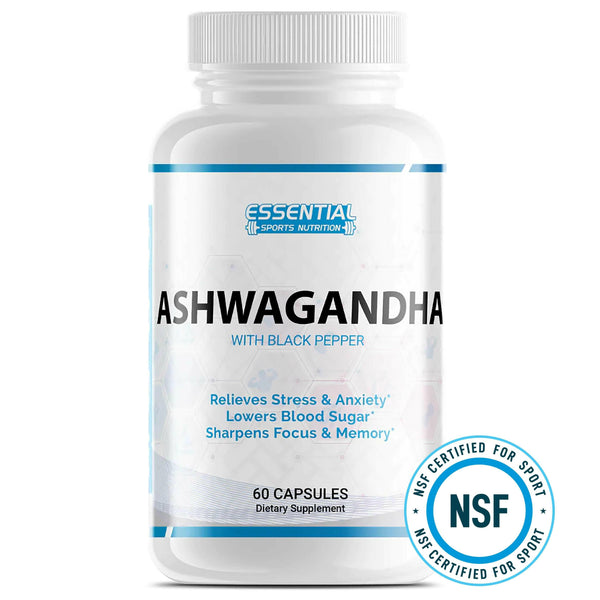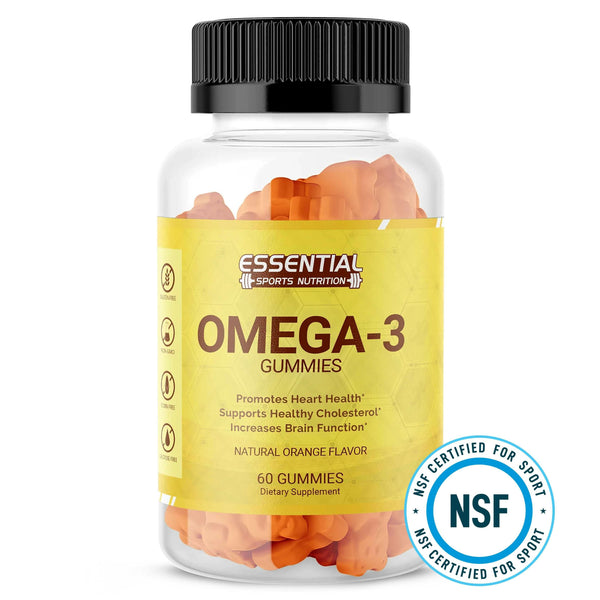Unlocking the Power of Antioxidants
Oxidative stress is an unseen enemy, playing a part in roughly 60% of all diseases. This highlights the crucial role antioxidants play in our health. The significant part they play in preventing disease and maintaining overall health is the central theme.
The information is based on solid, evidence-backed research, making it essential reading for anyone wishing to improve their health. It's all about equipping you with knowledge and helping you make informed decisions about your health.
Powerful Protection: How Antioxidants Safeguard Your Health
When antioxidants are a staple in your meals, you're arming your body against degenerative diseases and bolstering your immune system.
Now, here's a challenge - our modern, fast-paced routines can sometimes throw a wrench in our nutrient intake. That's where conscious food selections come into play. They play a crucial role in maintaining our health, even though amidst the daily grind, this defensive strategy can be easily overlooked.
Why are antioxidants important? They're not just about keeping you healthy today. They play a long-term role in your health, helping to stave off illnesses and keep your body functioning at its best. Feeding your body a steady diet of antioxidant-rich foods is not just about feeling good now - it's an investment in your future health.
Understanding Free Radicals' Impact

When discussing antioxidants, it's vital to grasp how free radicals dramatically affect our health. These unstable molecules contribute to oxidative stress, which is a key factor in aging and the emergence of various ailments. Research has shown that oxidative stress speeds up the aging process and triggers the onset of serious conditions such as cancer, Alzheimer's, and cardiovascular diseases.
Free radicals are not just bystanders in the body's health; they actively participate in inflammation. They not only initiate but also sustain inflammatory responses. This fact is particularly alarming because chronic inflammation is tied to a multitude of health issues, from heart disease to rheumatoid arthritis.
Essential Antioxidant Enzymes

Antioxidant enzymes are our body's soldiers, fighting a constant war against harmful free radicals. This group of enzymes, such as catalase, superoxide dismutase, and the master of them all, glutathione, act as a shield for our cells. They protect our cells from damage and help to keep us healthy.
Take a closer look at glutathione: It's a special type of protein, made from three key amino acids, and it's often called the body's master antioxidant. Why? Because it plays a crucial role in getting rid of toxins. Think of it as a cleanup crew, it helps our cells to get rid of unwanted waste, which in turn protects them from oxidative stress. This is vital in maintaining our overall health.
But it's not just about keeping us healthy today. Studies show that glutathione also plays a big role in preventing chronic diseases. That's why it's so important to keep our antioxidant enzyme levels, especially glutathione, at their best. They're not just protecting our cells, they're helping to ensure our long-term health and wellbeing.
Dietary Sources of Antioxidants

We're moving on from the topic of our body's built-in antioxidants, and putting a spotlight on the role that our meals play in strengthening this natural defense system. Studies show that foods high in antioxidants, and supplements packed with them, can boost our body's ability to ward off oxidative stress.
Let's discuss some foods that are a treasure trove of antioxidants:
-
Berries: Think blueberries, strawberries, and raspberries. These are loaded with antioxidants called anthocyanins.
-
Green Tea: This is a well-known source of catechins, which are powerful antioxidants.
-
Dark Chocolate: This sweet treat comes with flavonoids, polyphenols, and other antioxidants.
-
Nuts and Seeds: Walnuts and flaxseeds, for instance, are rich in vitamin E, which is an antioxidant.
-
Antioxidant Supplements: These typically contain a high dose of a variety of antioxidants, such as beta-carotene, selenium, and vitamins A, C, and E.
Incorporating these foods into your meals can give a significant boost to your antioxidant defenses, which could help reduce the damage caused by free radicals.
Cooking Methods and Antioxidant Retention

The way we cook can affect the nutrient content of our food, specifically antioxidants. These are compounds that help our bodies fight off harmful substances known as free radicals. Some antioxidants, such as vitamin C, are sensitive to heat and can break down when cooked. On the other hand, cooking can actually increase the availability of other antioxidants, like the lycopene found in tomatoes.
Finding the right balance between raw and cooked foods is key to getting the most from these health-promoting compounds. But it's not just about whether you cook your food or not, it's also about how you cook it. Steaming and microwaving, for instance, can help keep more antioxidants in your food compared to boiling.
What does this mean for your kitchen routine? You can amplify the antioxidant content of your meals by including a variety of antioxidant-rich foods such as berries, nuts, and dark chocolate. But keep in mind, that how you prepare these foods also matters.
The Health Benefits of Antioxidants

Expanding on the knowledge of cooking techniques and how they affect antioxidant retention, it's crucial to explore the numerous health benefits that these essential compounds provide.
-
The Role of Antioxidants in Slowing Aging: Regular consumption of antioxidants could potentially decelerate the aging process. They combat harmful free radicals and reduce oxidative stress, a major contributing factor to the speed of aging.
-
How Antioxidants Contribute to Skin Health: Substances such as vitamin C and E, both antioxidants, safeguard the skin from environmental harm and promote a radiant, youthful look.
-
Disease Prevention and Antioxidants: These compounds may help decrease the risk of specific cancers, heart disease, and other long-lasting conditions.
-
Antioxidants and Immune Health: These compounds enhance immune function by ensuring the integrity of cells.
-
Eye Health and Antioxidants: Antioxidants such as vitamin A and lutein contribute to the maintenance of eye health and may aid in preventing vision loss.
Antioxidants FAQs:
Q: What are antioxidants and how do they work?
A: Antioxidants are substances that neutralize free radicals, which are unstable molecules that can cause damage to cells in the body. They work by donating an electron to the free radical, stabilizing it and preventing it from causing harm.
Q: What are some common sources of antioxidants?
A: Antioxidants can be found in a variety of foods, including fruits, vegetables, nuts, and whole grains. Some of the best sources of antioxidants include berries, spinach, kale, nuts, and dark chocolate.
Q: What is the role of antioxidants in a healthy diet?
A: Antioxidants help protect the body from damage caused by free radicals, which are associated with various health effects, including aging and certain diseases. Including a variety of antioxidant-rich foods in your diet can help reduce the risk of these health issues.
Q: Can antioxidant supplements help improve health?
A: While some studies suggest that antioxidant supplements may have health benefits, others have shown no significant effect or even potential harm. It's important to consult with a healthcare professional before starting any antioxidant supplement regimen.
Q: How do antioxidants in foods differ from antioxidant supplements?
A: Antioxidants from whole foods are part of a complex matrix of nutrients, fiber, and other compounds that work together to provide health benefits. On the other hand, antioxidant supplements may not have the same synergistic effects and can potentially lead to overconsumption of specific antioxidants.
Q: What are the different types of antioxidants?
A: There are various types of antioxidants, including vitamin C, vitamin E, beta-carotene, lycopene, and selenium, among others. Each type of antioxidant may have unique health effects and benefits.
Q: Can antioxidants in foods reduce the risk of certain diseases?
A: Some research suggests that a diet high in antioxidants from foods may decrease the risk of certain diseases, such as age-related macular degeneration and some types of cancer. However, more studies are needed to confirm these potential benefits.
Q: Are there any potential risks associated with high antioxidant intake?
A: High doses of antioxidant supplements may increase the risk of certain health issues, such as lung cancer. It's important to get antioxidants from a balanced and varied diet rather than relying solely on supplements.
Q: How are antioxidants linked to age-related macular degeneration?
A: Antioxidants, particularly vitamins E and C, have been studied for their potential role in reducing the risk of age-related macular degeneration, a condition that can lead to vision loss in older adults. However, more research is needed to fully understand their impact.
Q: What are the recommendations regarding antioxidant intake from national health organizations?
A: The National Institutes of Health and the Office of Dietary Supplements recommend obtaining antioxidants from a healthy diet rather than from supplements whenever possible. They emphasize the importance of consuming a wide variety of antioxidant-rich foods for overall health and well-being.
Unleashing the Potent Defense
Let's pull back the curtain on the unsung heroes within us - antioxidants. These powerhouses work silently to protect us from damaging free radicals, making them crucial for maintaining good health.
When your diet is packed with antioxidants, you are equipping your body with a strong defense against degenerative diseases and giving a boost to your immune system.
Our modern lifestyles can sometimes make it hard to get enough of these vital nutrients. That's why making mindful food choices is such an important part of staying healthy. It may seem simple, but this defense mechanism can often be forgotten amid the hustle and bustle of everyday life.























